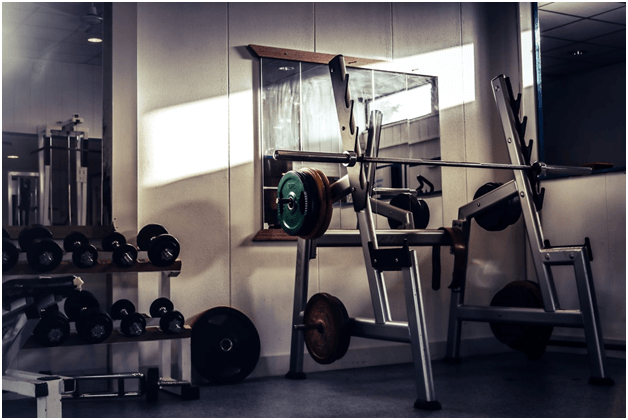As of 2019, there were 41,370 health clubs and fitness centers in the US.
Phew…that’s a lot.
The fact of the matter: People are prioritizing their health these days.
And, despite this high number of fitness institutions, there’s still a lot happening behind the scenes. With a rise in at-home fitness, people are getting fit from the comfort of their living room (or kitchen, or garage, or closet).
Some people have even opted to rent their own storage unit where they keep home fitness equipment as a personal gym. Clearly, when it comes to fitness, there are plenty of ways to stay active.
But how do you know what’s right for you?
There are several key differences between commercial and residential fitness equipment. Read on to learn how to best reach your greatest fitness potential while using equipment catered to you.
Public vs. Private
Before considering commercial and home equipment you need to ask yourself an important question. What workout atmosphere most benefits you?
The average person doesn’t like to sweat in public. Fitness clubs and centers with commercial equipment are open to all, meaning that your sweat session will be on display to those around you.
Yet, one often forgets how motivating the public sphere can be. Gyms hold a community of people with a common goal: to look and feel good.
While exercising in the comfort of your own home allows you to sweat privately, you lose a certain sense of accountability and accessibility.
Sometimes you need to hear the guy grunting as he hits his bench press PR. That sound of pure perseverance might allow you to run an extra mile or push through another repetition.
But no hate to those who work hard from home. For some, privacy is the key to a good workout. If you enjoy blasting your music and singing along as you pump, investing in home workout equipment might be for you.
How Sturdy Is Home Fitness Equipment?
One thing you can count on with commercial fitness equipment is that it’s meant to last. Hundreds of people go to the gym every day, and commercial equipment has to be up to the task.
Home fitness equipment will last you a while because there aren’t as many people using it. And, in regard to safety, at-home equipment like bench presses, weight racks, and treadmills have built-in features to prevent injury due to self-assembly.
Yet, residential equipment is typically less expensive. Therefore, it is also less industrially durable than commercial fitness equipment.
One key difference worth mentioning is that commercial equipment is more comfortable. If comfort is a priority to you, working out at a gym or making an investment in personal commercial equipment is worth considering.
Weighing up the Cost
Building your own gym can be pricey, but it also saves you money in the long run. For example, it prevents you from paying a monthly membership fee at your local gym.
Because it’s pricey, it might take you longer to build your gym. This means that, at least for some period of time, you’ll have to get creative with your workouts. Depending on what you have, this means more bodyweight work and unassisted cardio.
It also might mean that buying commercial equipment over residential equipment is too expensive.
However, when you pay a gym membership fee, you’re lifted from the responsibility of upkeeping your own equipment.
In a gym, if something breaks, you don’t have to fix it.
This seems like a small factor. But, even though there are fewer people using an at-home gym, the equipment will still eventually need some repairs. This is especially the case if the equipment is used on a regular basis.
The cost also depends on your personal goals. The heavier you want to lift, the more equipment you have to buy. At a local gym, you don’t pay for the individual weights you use.
Is One More Effective Than the Other?
The effectiveness of your workout equipment all depends on your lifestyle.
Are you too busy to make it to the gym? Working out at home is certainly more convenient. But do you have the right equipment?
Bodyweight workouts aren’t for everyone. Without the right equipment, at-home workouts may not give you the results you want.
Home fitness has undergone an evolution over the last 200 years. From VCR workouts to Beachbody memberships to following fitspo influencers on social media. Sometimes these fads work, but for the most part, they don’t.
Commercial equipment is made to give you great results, but not everyone can afford a gym membership or make the time to go to the gym.
Some argue that putting together an at-home gym using residential equipment rather than commercial equipment is a waste of time. But if it’s the affordable option, people will likely do it over and over again.
So, even if the consensus is that commercial equipment is more effective, it doesn’t matter if it’s not accessible.
How to Get the Best of Both Worlds
Here’s the kicker: Commercial fitness equipment is accessible and affordable if you know where to look.
Do you want to build an affordable yet private garage gym? We’ve got you covered with commercial-quality home fitness equipment.
Are you trying to put together an excellent fitness center? Yep, we can help with that, too.
At Used Gym Equipment, we offer the best of both worlds. If you’re looking to build your own gym, whether personal or large-scale, contact us for great deals on used, new, and remanufactured commercial gym equipment!


